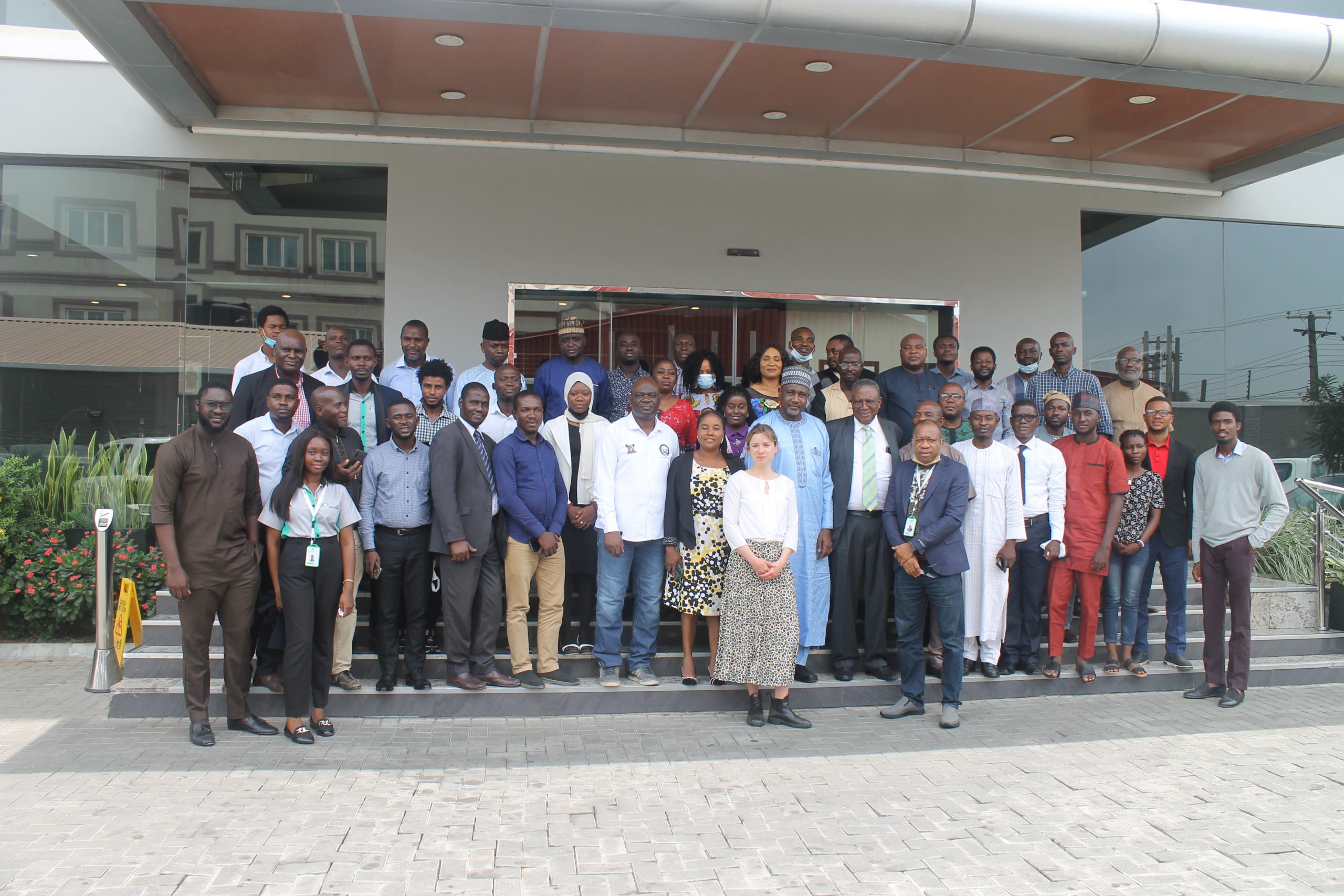SRADeV Nigeria hosts informal sector training for e-waste collectors and its 2nd stakeholders’ workshop on the E-waste compensation as an international financing mechanism (ECoN) pilot project on 28th and 29th March 2022.
The 28th and 29th of March 2022 witnessed commendable milestones in the management of e-waste in Nigeria.
SRADeV Nigeria hosted the E-waste compensation as an international financing mechanism (ECoN) pilot project informal sector training for e-waste collectors and its 2nd stakeholders’ workshop on the two days respectively.
The Informal sector training held at LASEPA on the 28th of March taught and certified over 30 registered and non-registered informal collectors and recyclers on de-pollution and dismantling of flat panel screens including economic calculations.
The quick outcomes of this training were as follows:
- de-pollution and dismantling flat panel screens,
- weighing of fractions,
- estimation of the value of fractions and determination of the costs of sustainable recycling of one screen,
- Presentation on Li-ion battery safety
This training was given by the two partner organizations verde impacto and Hinckley recycling who handled the collection and proper recycling of 20,000kg of waste li-ion batteries and flats panels for the pilot project respectively.
Dr. Dolapo Fasawe, General Manager of LASEPA commended the ECoN Project team for the capacity building initiative and encouraged that formal recycling of e-waste is nationally supported to achieve a circular economy.
The informal sector capacity building was followed quickly by the 2nd Stakeholders’ workshop held in collaboration with the National Environment Standards and Regulation Enforcement Agency (NESREA) on the 29th of March 2022.

The workshop which was well attended by stakeholders from various government ministries such as FMENV, LSMOE, LASEPA, LAWMA, civil society organizations such as EPRON, PAVE, SEDI, and informal e-waste collectors and recyclers discussed at length the potentials for e-waste compensation to compliment the Extended Producers Responsibility (EPR) scheme for Nigeria.
Mr. Aliyu Jauro, DG of NESREA in his presentation on the overview of EPR framework for Nigeria and the correlation with the ECoN Project, He highlighted that
- The ECoN and the GEF projects play complementary roles in the Implementation of the EPR for the EE sector
- While the ECoN project covers two e-waste categories: Lithium-ion batteries and flat screens, the GEF project covers six e-waste categories: cooling and freezing equipment, screens and monitors, lamps, large equipment, small equipment, small IT and Telecommunications
- Both Projects require the collection of the whole e-waste for recycling while Recyclers are expected to ship the hazardous fractions of e-waste that cannot be treated within the country abroad for proper treatment in line with the Basel Convention requirements; and
- Both projects have also made provisions for incentives with emphasis on not only the collection of e-waste but the ESM of the same.

As a way forward, he mentioned that All players in the sector should subscribe to the programme by registering with the PRO; Donor Agencies to consider supporting the collection and recycling of e-waste in other parts of the country; E-waste generators should give their e-waste to only registered e-waste collectors to ensure they are handled in ESM, etc.
This was followed by a presentation of the outcomes and recommendations of the feasibility studies conducted as part of the deliverable of the project by Tobias Schleicher, Hannah Jung, Tobi Adegun, and Isreal Olagunju of Oko Insititute, Closing the loop, Verde Impacto and Hinckley Recycling respectively.
As part of the reflections, the Lagos state ministry of environment and LASEPA mentioned the need for concerted efforts by all stakeholders to achieve the goal of a sustainable e-waste management process in the state and the country at large.
Other outcomes of the workshop included a report of the technical sessions to answer questions on the incorporation of the ECoN project into the epr scheme. Notable amongst these reports is the urgent need for targeted advocacy on the epr scheme and compensation model to the grassroots to encourage dealing with formal accredited collectors and recyclers rather than the informal brown collectors.
The workshop was rounded up by a vote of thanks from Dr. Leslie Adogame; executive director of SRADeV Nigeria; the host organization who interfaced between policymakers and the project team and produced the End-of-Life Battery management policy and End-of-Life Flat Panel Display Management Document.
Media Report
Stakeholders want legislation, policies to strengthen Producers Responsibility on E-waste









